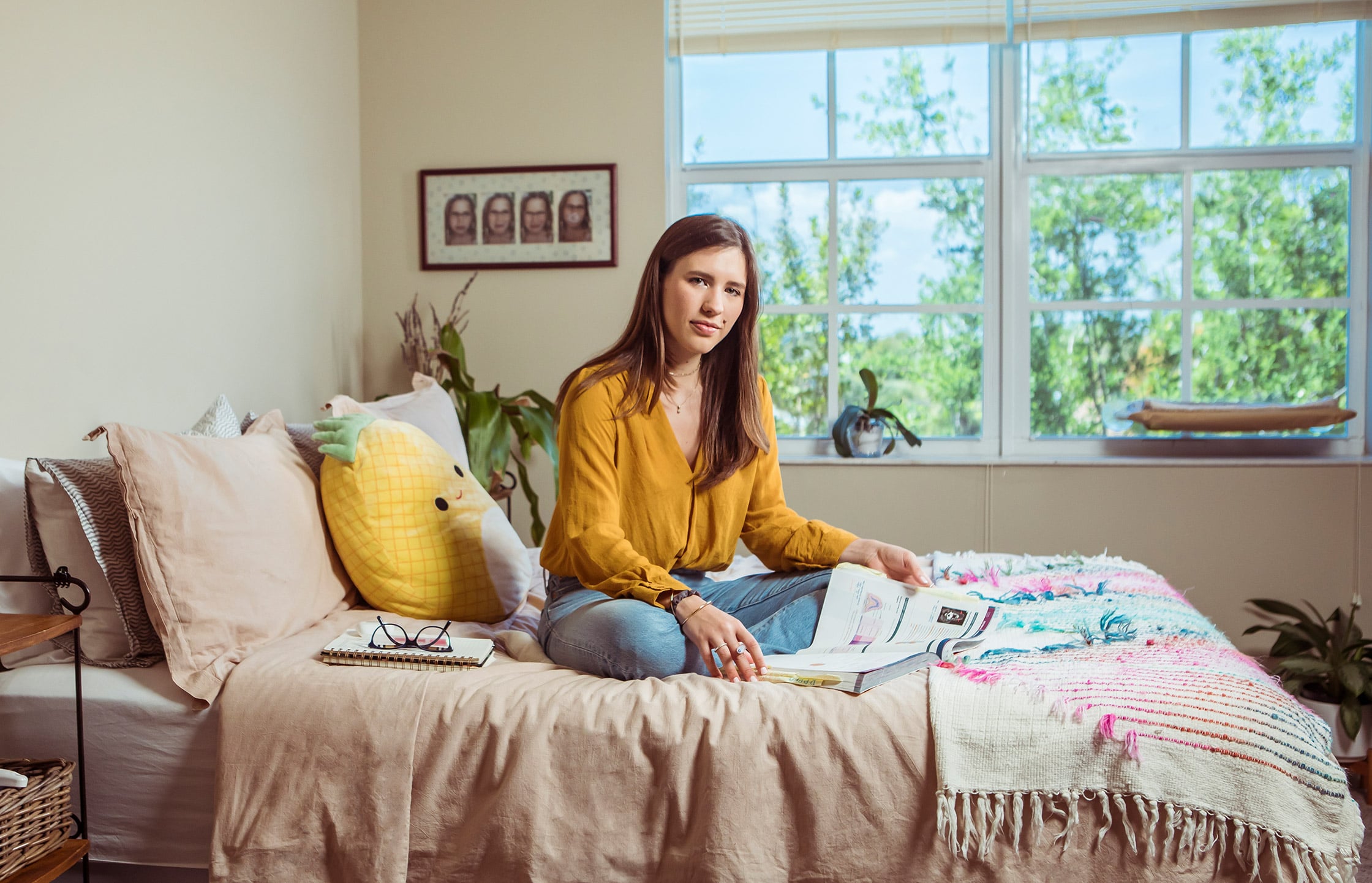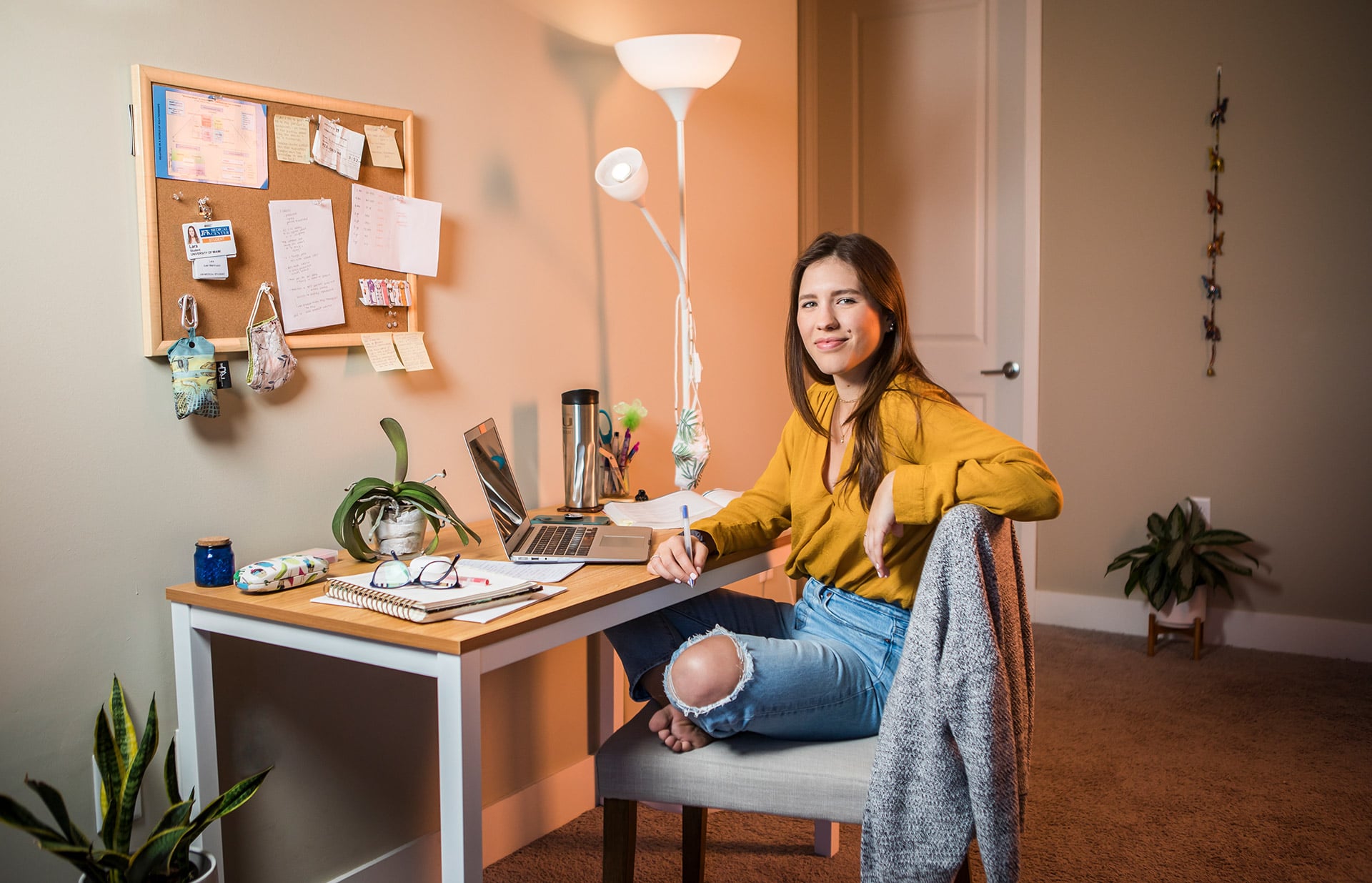Thank You, Doctor
A Miller School student pays tribute to courageous physicians who sacrifice their profession for their freedom
By Lara Juan Martinuzzi
Photography by Sonya Revell

Lara Juan Martinuzzi
I
was patiently sitting in the lobby at Quest Diagnostics, waiting for the staff to slowly let people inside in adherence with the new social distancing guidelines. I waited for about 10 minutes before a man in his mid-50s called my name and led me into a patient room.
“So we’re doing the drug screening?” he asked me in Spanish as I entered the doorway and confirmed. While he typed in my information in his computer, he asked me where I was from. I told him I was from Venezuela.
“Ah, Venezuela! A beautiful country! I worked in a small Venezuelan town called Maturin for a few years,” he said cheerfully. I knew Maturin; my grandmother had taken us there when we were young. She had shown us the town where she first arrived when she immigrated to Venezuela from Spain during the Spanish Civil War.
“You need the drug screen for school? What are you studying?” he asked me. When I told him I was in medical school, he told me he was a doctor himself. He had studied medicine in Cuba and practiced for years as an intensive care physician. He proudly told me that he had just gotten his degree to become a nurse. The process of revalidating a medical license in the United States is a long and expensive one. With some shame in his voice, he told me this process would have been too much for him.
A moment later, a staff member came into the room and called him away for help. He told me someone else would be collecting the urine sample from me and that they would be in shortly.
“Thank you, doctor,” I said as he walked away.
He turned around in a paralyzed fashion and looked at me. His silence and the light in his eyes are something I will never forget. How long had it been since a patient called him doctor? I could tell that he was content with his work by the liveliness and the kindness with which he treated me. However, I couldn’t help but think about his years of dedication to the study of medicine and how he was no longer able to practice his passion as a physician.
One word makes a man’s day
That afternoon I realized that one word had likely made this man’s day. Doctor. A word that had come with many sacrifices, enormous commitment and profound passion. A title that he would never reclaim in America.

This was not the first time I had encountered a Latino physician who was unable to practice medicine or who had to go through additional, extensive training to regain their privileges in the U.S. A few months prior at a conference, I met a Venezuelan orthopedic surgeon who had just recently relocated to the U.S. He was at the conference to network within the medical field and was considering training to become a surgical technician.
A family friend who had been a renowned orthodontist in Caracas was now working as a dental hygienist for a local dentist in Miami. An OB/Gyn physician from Maracaibo whom I met on a medical mission trip was in the process of starting his residency — for the second time — in order to be able to practice in America.
These doctors abandoned their adored countries to create safer lives for their families. They left behind memories, homes and families. They renounced their titles and with enormous humility, entered their beloved medical profession in new roles. Their passion towards the field is undoubtable and will certainly be recognized by their future patients.
To all the doctors that cannot exercise their passion because they made the brave decision to give it up in search for a better life, I want you to know that the medical community sees you. The lives you touched in your past will never forget your work, and you shouldn’t either. Although you might not regain the privilege of being a practicing physician, your role in medicine is remembered; you will always be an honored part of this community.
Thank you, Doctor.![]()
Lara Juan Martinuzzi is a third-year medical student at the Miller School of Medicine. Her essay was originally published on March 30, 2021, by in-Training, an online peer-reviewed publication written and edited by and for medical students. Republished with permission.


